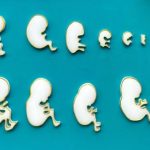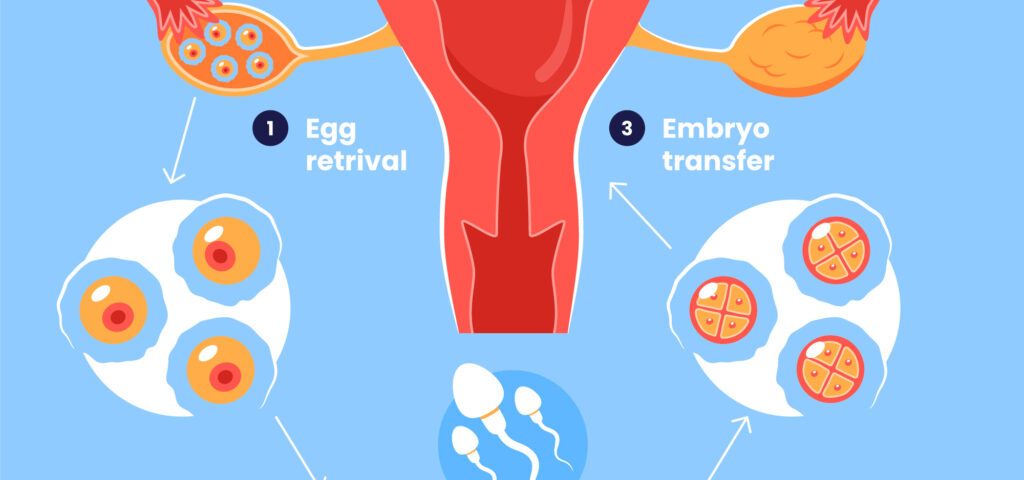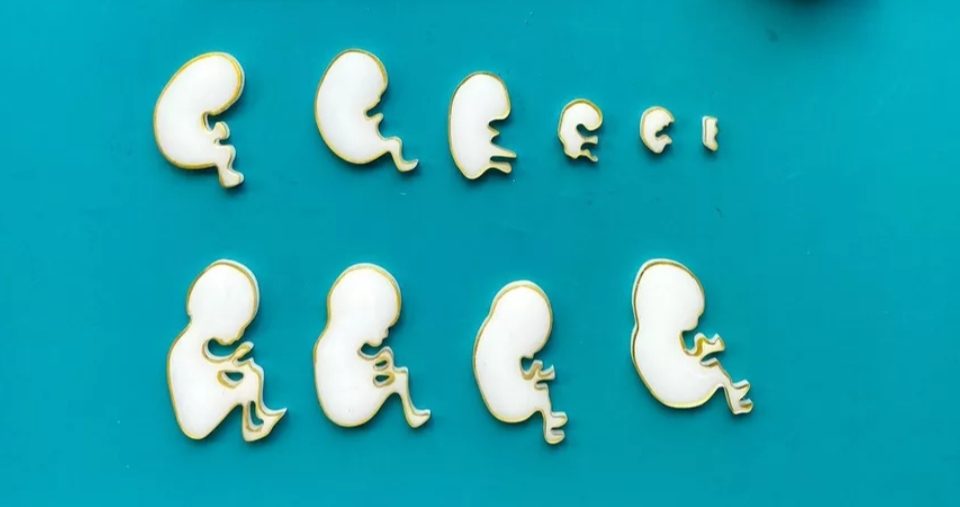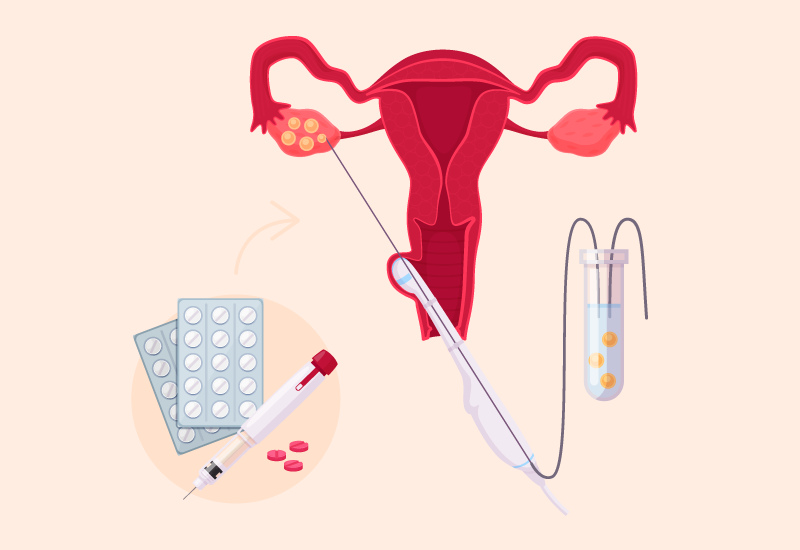
Can You Do IVF If Your Tubes Are Tied?
April 19, 2025
Can Unused Embryos from IVF Be Destroyed?
April 19, 2025Does IVF Freeze Eggs or Embryos? Your Ultimate Guide to Understanding the Process
When you hear about in vitro fertilization (IVF), you might picture a high-tech lab, tiny petri dishes, and the miracle of life starting outside the body. But one question pops up time and again: Does IVF freeze eggs or embryos? If you’re exploring fertility options or just curious about how it all works, you’re in the right place. This isn’t a quick yes-or-no answer—it’s a journey through the science, the choices, and the real-life impact of IVF. Let’s dive in and unpack everything you need to know, from the basics to the latest breakthroughs, with a few surprises along the way.
The Basics: What Happens in IVF?
IVF is like a carefully choreographed dance between science and nature. It’s designed to help people who can’t conceive naturally by bringing eggs and sperm together in a lab. But before we get to the freezing part, let’s break down the steps so you can see where eggs and embryos fit in.
First, a woman takes fertility medications to boost her ovaries into producing multiple eggs—way more than the usual one egg per month. Once those eggs are mature, a doctor retrieves them in a minor procedure. Then, in the lab, those eggs meet sperm (either from a partner or a donor), and if all goes well, fertilization happens. The result? Embryos—tiny clusters of cells with the potential to become a baby. Finally, one or more embryos are transferred into the uterus, hoping they’ll implant and grow into a pregnancy.
So, where does freezing come in? It’s not a requirement, but it’s a game-changer for many. IVF can freeze both eggs and embryos, depending on your situation. The real question is: What’s the difference, and why does it matter? Let’s explore that next.
Eggs vs. Embryos: What’s the Difference?
Picture an egg as a single ingredient—like a raw egg in your kitchen. It’s full of potential, but it’s not a cake yet. In IVF, an egg is retrieved before it’s fertilized. Freezing eggs means storing that potential for later, keeping them in a kind of suspended animation until you’re ready to use them.
An embryo, on the other hand, is what you get after the egg meets the sperm and starts dividing—like a cake that’s begun to rise. Freezing embryos means preserving a fertilized egg that’s already on its way to becoming a baby. Both can be frozen, but the choice depends on your goals, timing, and circumstances.
Here’s a quick comparison to make it crystal clear:
| Feature | Frozen Eggs | Frozen Embryos |
|---|---|---|
| What It Is | Unfertilized egg | Fertilized egg (early-stage embryo) |
| When It’s Frozen | Before fertilization | After fertilization |
| Who It’s For | Single people, delaying pregnancy | Couples, after IVF cycle |
| Storage Time | Up to 10+ years (varies by country) | Up to 10+ years (varies by country) |
Both options use a super-cool process called vitrification—a flash-freezing technique that prevents ice crystals from forming and damaging the cells. But the decision to freeze one or the other isn’t just about science—it’s personal. Let’s dig into why people choose each.
Why Freeze Eggs? The Power of Flexibility
Freezing eggs is like hitting the pause button on your biological clock. It’s a popular choice for women who aren’t ready to start a family yet but want to keep their options open. Maybe you’re focused on your career, haven’t found the right partner, or need medical treatment (like chemotherapy) that could harm your fertility. Whatever the reason, egg freezing lets you save your younger, healthier eggs for later.
Take Sarah, for example. At 32, she was single and climbing the corporate ladder. She wasn’t sure when—or if—she’d want kids, but she didn’t want to lose the chance. She went through egg retrieval, froze 15 eggs, and now, at 38, she’s starting to think about thawing them with a sperm donor. Stories like hers are becoming more common as egg freezing grows in popularity.
Recent data backs this up. According to the American Society for Reproductive Medicine (ASRM), egg freezing has surged over the past decade, with thousands of women opting in each year. Success rates are promising too—about 70-90% of eggs survive thawing, and for women under 35, a single frozen egg has a 5-7% chance of becoming a baby. Stack up 10-15 eggs, and those odds climb significantly.
Practical Tips for Egg Freezing
- Timing Matters: Freeze your eggs before 35 for the best quality and quantity. After that, egg numbers and health drop fast.
- Expect a Process: It takes 2-3 weeks of hormone shots and monitoring, plus a quick retrieval day.
- Cost Check: In the U.S., it’s about $6,000-$10,000 per cycle, plus $500-$1,000 yearly storage fees. Some employers now cover it—check your benefits!
But egg freezing isn’t perfect. It’s a solo act—no sperm required—which gives you freedom, but it also means you’ll need to fertilize those eggs later. That’s where embryos come in.
Why Freeze Embryos? A Head Start on Pregnancy
Freezing embryos is like saving a half-baked recipe—you’ve already mixed the ingredients, and now it’s ready to finish cooking when you are. This happens most often during an IVF cycle when you end up with extra embryos after transferring one or two to the uterus. Instead of discarding them, you can freeze them for a future pregnancy.
For couples, this is a no-brainer. Imagine Mike and Lisa, who did IVF at 34. They transferred one embryo, had a healthy boy, and froze three extras. Two years later, they thawed one, and now Lisa’s pregnant again—all without another round of egg retrieval. It’s efficient, cost-effective, and boosts your chances of growing your family later.
Science supports this too. A 2021 study from the Society for Assisted Reproductive Technology (SART) found that frozen embryo transfers (FET) have a slightly higher live birth rate—around 50% for women under 35—compared to fresh transfers (45%). Why? Freezing lets your body recover from hormone treatments, and doctors can time the transfer perfectly with your cycle.
Embryo Freezing in Action
- Higher Success: Embryos are tougher than eggs—95% survive thawing, giving you a solid shot at pregnancy.
- Genetic Testing: You can screen embryos for conditions like Down syndrome before freezing, picking the healthiest ones.
- Shared Decision: It’s a couple’s choice, locking in both partners’ genetics upfront.
There’s a catch, though. Embryos tie you to a specific sperm source. If you split with your partner, legal battles over those embryos can get messy. That’s a big reason some opt for eggs instead.
Which Is Better: Eggs or Embryos?
There’s no one-size-fits-all answer—it depends on you. Freezing eggs is about keeping your options wide open. Freezing embryos is about locking in a plan. Here’s how to decide:
✔️ Freeze Eggs If:
- You’re single or unsure about your future partner.
- You want to delay motherhood for years.
- You’re facing a medical treatment that could zap your fertility.
❌ Freeze Embryos If:
- You’re in a committed relationship with a partner you trust.
- You’ve already got embryos from an IVF cycle.
- You want a higher success rate per thaw.
Still torn? Let’s try a quick quiz to nudge you in the right direction.
Mini Quiz: What’s Your Freezing Fit?
Answer these with a yes or no:
- Are you single or not ready to pick a sperm donor?
- Do you see kids in your distant future (5+ years)?
- Are you okay with a slightly lower success rate per egg?
If you said “yes” to two or more, egg freezing might be your vibe. If not, embryos could be the way to go. Either way, talk to a fertility specialist—they’ll tailor it to your life.
The Freezing Process: How It Actually Works
Whether it’s eggs or embryos, the freezing process is a marvel of modern tech. It starts with vitrification, which sounds fancy but just means super-fast freezing. Here’s the step-by-step:
- Prep: Eggs or embryos are bathed in a special solution to protect them from ice damage.
- Flash Freeze: They’re plunged into liquid nitrogen at -196°C (-321°F) in seconds.
- Storage: They’re tucked into tanks, where they can sit for years without aging.
For eggs, this happens right after retrieval. For embryos, it’s usually 5-6 days post-fertilization, when they’ve reached the blastocyst stage (about 100-200 cells). The survival rates are stellar—90% for eggs, 95% for embryos—thanks to vitrification replacing older, clunkier slow-freeze methods.
Fun fact: The longest-stored embryo to result in a live birth was frozen for 27 years! That baby, born in 2020, started as an embryo in 1992. It’s proof this tech can stand the test of time.
The Emotional Side: What No One Talks About
IVF isn’t just science—it’s a rollercoaster of hope, stress, and tough calls. Freezing eggs or embryos adds another layer. When you freeze eggs, you might feel empowered but anxious—will they work years from now? With embryos, there’s relief at having a backup, but also pressure: What if you don’t use them? What happens if your relationship changes?
I spoke to a friend, Jen, who froze embryos after her first IVF success. “It felt like a safety net,” she said, “but also a weird responsibility. They’re not babies yet, but they’re something.” Her clinic offered counseling, which helped her process it. If you’re considering this, don’t skip the emotional support—it’s as crucial as the medical stuff.
Coping Tips
- Talk It Out: Find a therapist or support group familiar with fertility journeys.
- Set Boundaries: Decide upfront what you’ll do with unused eggs/embryos (donate, discard, etc.).
- Celebrate Small Wins: Freezing is a big step—give yourself credit!
The Latest Buzz: What’s New in 2025?
IVF tech is always evolving, and 2025 is no exception. Here’s what’s hot right now, based on recent chatter and research:
- AI Boost: Clinics are using artificial intelligence to pick the best eggs and embryos for freezing. A 2024 study from Columbia University showed AI can predict embryo viability 20% better than human embryologists.
- Social Freezing Surge: Posts on X show more women in their 20s freezing eggs “just in case,” driven by career goals and dating delays post-pandemic.
- Eco-Friendly IVF: Some labs are cutting energy use in freezing tanks, responding to climate-conscious patients.
These trends hint at where IVF is headed—smarter, greener, and more accessible. But they also raise questions we’ll tackle later, like cost and ethics.
Risks and Realities: What to Watch For
Freezing isn’t foolproof. Eggs are trickier to freeze than embryos because they’re bigger and more fragile. About 10-30% don’t survive thawing, depending on your age and the clinic’s skill. Embryos fare better, but there’s still a small chance of damage.
Then there’s ovarian hyperstimulation syndrome (OHSS), a rare but serious risk from the hormone shots used to retrieve eggs. Symptoms like bloating or pain hit 1-5% of patients, and severe cases need hospital care. Good news? Frozen embryo transfers dodge this risk better than fresh ones, since your body gets a break.
Risk Rundown
✔️ Egg Freezing: Lower survival rate, OHSS risk during retrieval.
✔️ Embryo Freezing: Higher success, but legal/ethical tangles if plans change.
❌ Both: Costly, no pregnancy guarantee.
Cost Breakdown: What’s the Damage?
IVF isn’t cheap, and freezing adds to the tab. Here’s a ballpark for 2025 in the U.S., based on current trends:
- Egg Freezing: $6,000-$10,000 per cycle, $500-$1,000/year storage.
- Embryo Freezing: $1,000-$2,000 to freeze (after IVF), same storage fees.
- Full IVF Cycle: $12,000-$17,000, including retrieval and transfer.
Insurance varies wildly—some states mandate coverage, others don’t. A quick hack? Check if your job offers fertility benefits; big companies like Google and Amazon often do.
Money-Saving Hacks
- Shop Around: Clinics differ in price—compare a few.
- Grants: Look into fertility nonprofits like Baby Quest for help.
- Tax Break: Some costs might be deductible—ask your accountant.
Beyond the Basics: 3 Things You Haven’t Heard
Most articles stop at the how-to, but there’s more to this story. Here are three angles you won’t find everywhere:
1. The “Freeze-All” Revolution
Some clinics now freeze all embryos after IVF, even if you’re transferring right away. Why? It lets your body reset after hormone overload, boosting implantation odds. A 2023 Stanford study found women over 35 with high progesterone levels had a 73% higher pregnancy rate with this method. It’s not standard yet, but it’s gaining traction.
2. The Sperm Factor
Eggs get the spotlight, but sperm quality matters too. Freezing embryos locks in the sperm you use—great if it’s top-notch, risky if it’s not. A 2022 study in Fertility and Sterility showed frozen donor sperm plus frozen embryos outperformed fresh sperm in some cases. If you’re using a partner’s sperm, test it first.
3. The Mental Math of Multiples
Freezing means you might transfer one embryo at a time, cutting the odds of twins or triplets. That’s safer—multiple pregnancies spike risks like preterm birth—but it’s rarely discussed upfront. A mom I know, Tara, froze embryos and did single transfers. “I wanted one healthy baby, not a high-risk pregnancy,” she said. It’s a choice worth weighing.
Your Next Steps: Making It Real
Ready to explore freezing? Here’s a roadmap:
- Research Clinics: Look for high success rates and vitrification expertise.
- Consult a Doc: A reproductive endocrinologist can map your fertility stats.
- Plan Finances: Budget for the cycle and years of storage.
- Lean on Support: Bring a friend or partner to appointments—it’s less lonely.
Not sure yet? That’s okay. Chat with someone who’s been there—online forums like Reddit’s r/infertility are goldmines of real talk.
Poll Time: What’s Your Take?
What’s driving your interest in IVF freezing?
A) Delaying kids for life goals
B) Medical reasons
C) Just curious
Drop your vote in the comments—I’d love to hear!
The Big Picture: Why It Matters
Freezing eggs or embryos isn’t just about science—it’s about control. It’s a way to rewrite the rules of timing, health, and family. Whether you’re 25 and dreaming of a future baby or 40 and building one now, IVF’s freezing options give you power over a process that’s often unpredictable.
But it’s not magic. It’s a tool with costs, risks, and limits. The key is knowing what it can—and can’t—do for you. With 10 million IVF babies born worldwide since 1978, and counting, it’s clear this tech is here to stay. And as it grows—smarter, cheaper, greener—it’s reshaping how we think about parenthood.
So, does IVF freeze eggs or embryos? Yes, and yes. The real question is what you’ll freeze—and when. Whatever you choose, you’re not alone on this journey. What’s your next step?




